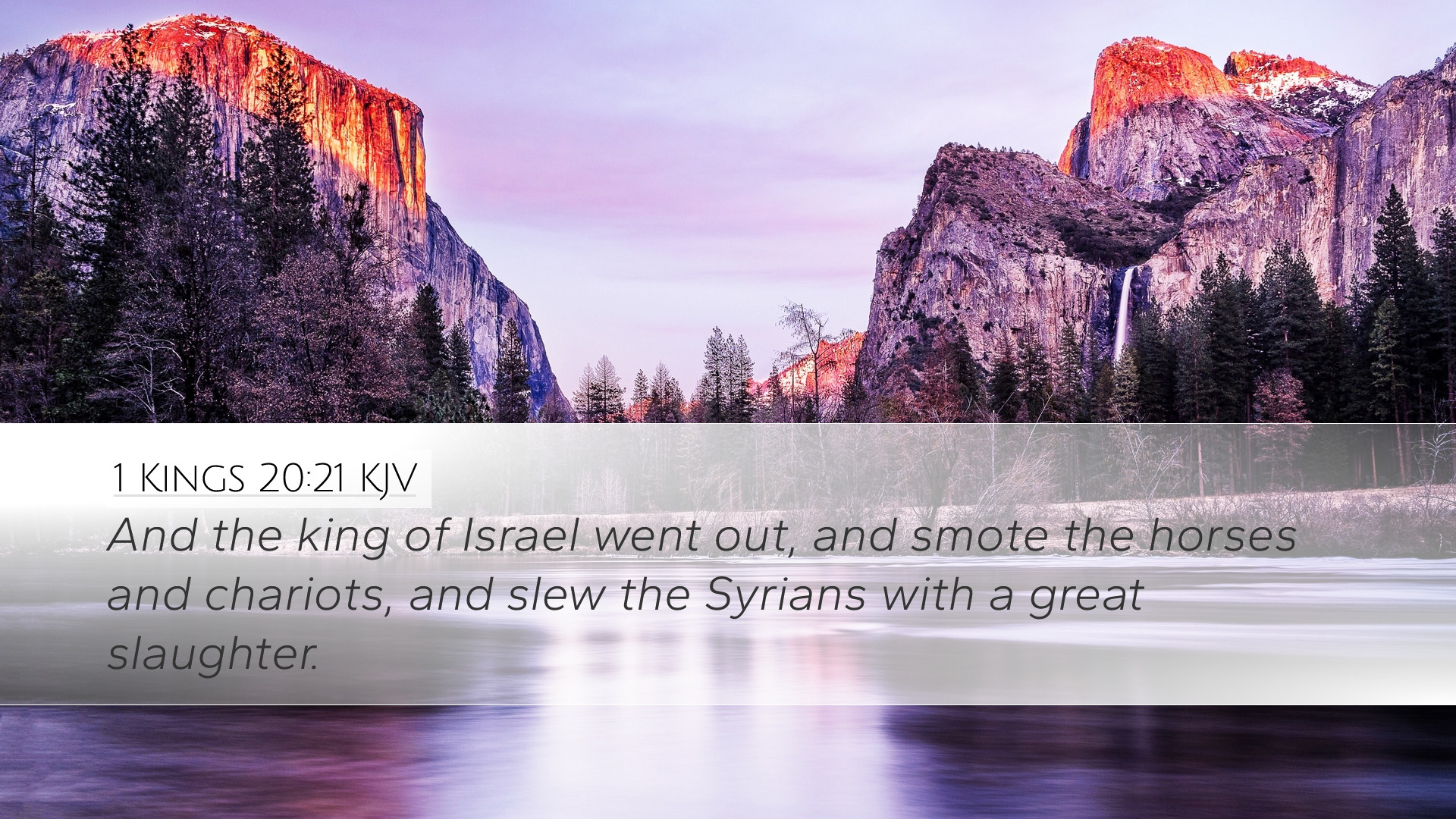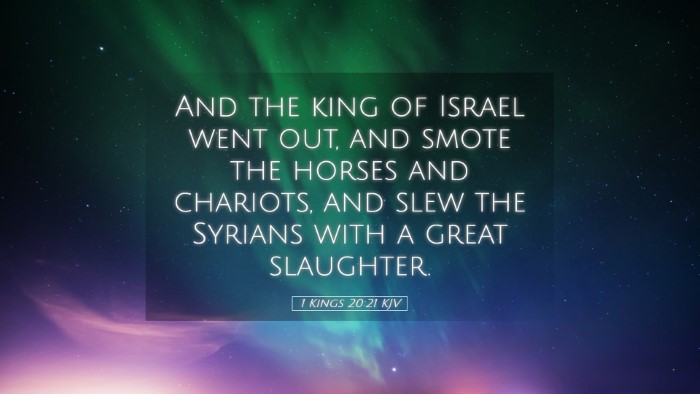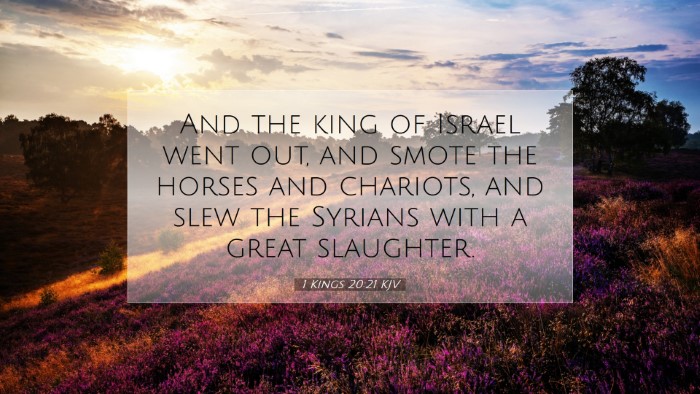Commentary on 1 Kings 20:21
Verse: 1 Kings 20:21 - "And the king of Israel went out and smote the horses and chariots, and slew the Syrians with a great slaughter."
Introduction
This verse captures a significant moment in the military conflict between Israel and Syria during the reign of Ahab. It illustrates the decisive actions taken by King Ahab following the confrontation with Ben-Hadad, king of Syria. The event not only highlights divine intervention but also serves as a crucial turning point in the narrative of the Northern Kingdom of Israel.
Contextual Background
The backdrop of this passage involves Ahab's struggle against Ben-Hadad, who threatened Israel with destruction. In a series of skirmishes and negotiations highlighting the spiritual and moral decline of Israel under Ahab's leadership, this encounter serves to underscore God’s providence and judgment.
Insights from Commentators
Matthew Henry's Commentary
Matthew Henry emphasizes the providential role of God in this deliverance. He outlines how God had promised victory to Ahab despite his moral failings. Henry notes that God used Ahab as an instrument, demonstrating His sovereignty. The victory serves as a reminder of God's faithfulness even when His people waver.
Albert Barnes' Notes on the Bible
Albert Barnes points out the significance of the phrase "went out and smote." He interprets this as not merely a military maneuver but a complete determination on Ahab's part to respond decisively to the threat posed by Ben-Hadad. Barnes emphasizes that Ahab's actions were driven by divine encouragement, noting that the confidence given to him by the prophet should be seen as foundational to his success.
Adam Clarke's Commentary
Adam Clarke offers an analysis that highlights the ferocity of the battle. He discusses the strategic importance of the horses and chariots, which represent the military might of Syria. Clarke notes that Ahab's victory was not only physical but served as a demonstration of God’s authority, as the overwhelming slaughter of the Syrians signals divine favor. He also raises the importance of Ahab's subsequent repentance and how this victory could be seen in tandem with God's grace even for a flawed leader.
Theological Implications
The events surrounding 1 Kings 20:21 provide crucial insights into the character of God as both a deliverer and a judge. Despite Ahab’s shortcomings, God's sovereign will prevails. This raises questions about the relationship between human leadership and divine sovereignty.
Divine Sovereignty
God's control over nations and kings is evident. He orchestrates victories for His purposes. This principle can offer assurance to pastors and church leaders today that despite societal chaos, God is in control, and His plans will prosper.
Human Responsibility
Ahab's role in this narrative demonstrates that human actions are still crucial. While divine providence guides events, individual choices and moral standing profoundly impact outcomes. This serves as an admonition for leaders to uphold righteousness and seek God’s counsel in their decisions.
Practical Applications
The lessons gleaned from this commentary can be applied in various aspects of ministry and personal faith.
- Understanding Leadership: Leaders ought to remain humble, recognizing that their effectiveness is contingent upon their alignment with God's will.
- God’s Faithfulness: The assurance of divine assistance can empower believers to confront challenges with courage, knowing that God is with them.
- Importance of Repentance: The narrative prompts reflection on personal spiritual growth, emphasizing the necessity of repentance for restoration.
Conclusion
1 Kings 20:21 serves as a monumental verse highlighting God's providential care and intervention in the affairs of Israel. Through Ahab's story, we gain profound insights into the dynamics of divine sovereignty and human responsibility. As scholars, pastors, and students of the Word, this passage invites deeper reflection on God’s character, the nature of leadership, and the call to faithful obedience amidst trials.


